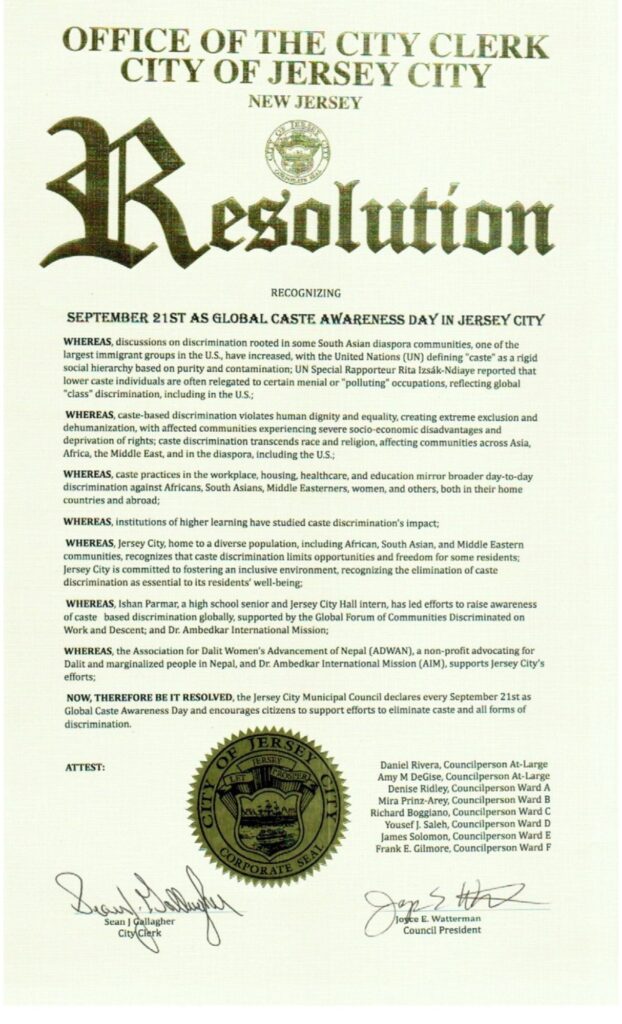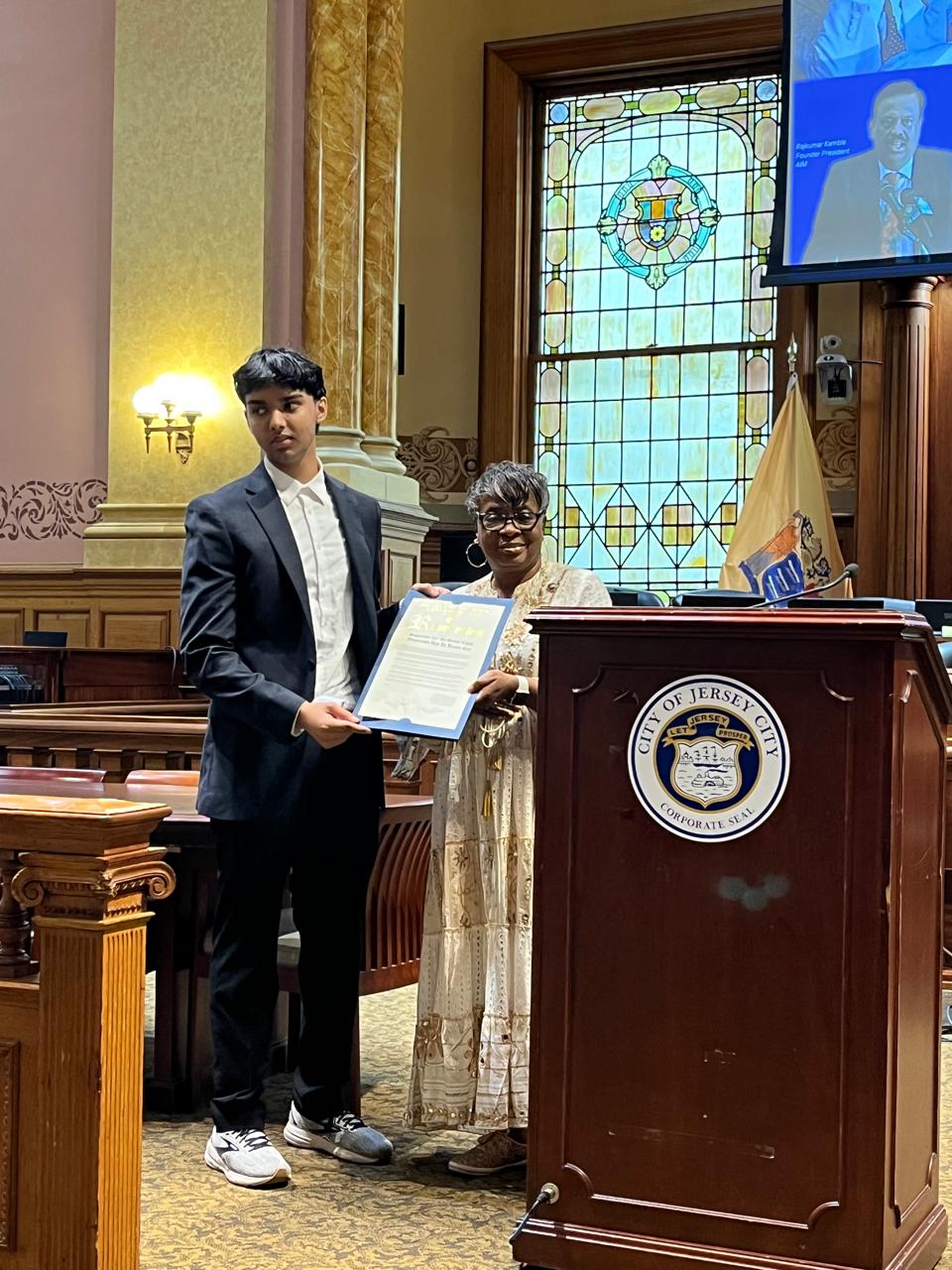New Jersey declares September 21 as Global Caste Awareness Day
In a landmark step towards fighting caste-based discrimination, New Jersey officially declared September 21 as Global Caste Awareness Day, following a resolution passed by the Jersey City Municipal Council. This significant move highlights the need to address caste-based discrimination, a pervasive issue affecting millions of people globally, particularly those in the South Asian diaspora.

The event aimed to raise awareness about the struggles faced by youth and other marginalized community members from Communities Discriminated on Work and Descent (CDWD), who continued to experience discrimination, social exclusion, and untouchability due to deeply rooted caste-based biases.
The passing of resolution was led by youth leader Mr Ishan Parmar and the Ambedkar International Mission (AIM), with support from the Association for Dalit Women's Advancement of Nepal (ADWAN) and the Global Forum of Communities Discriminated on Work and Descent (GFoD). It urges Jersey City residents to actively engage in efforts to eradicate caste and all forms of discrimination. The recognition of Global Caste Awareness Day emphasizes the city's commitment to promoting justice and equality, highlighting the urgent need to eliminate caste-based exclusion. The City Council also acknowledged the vital work of global organizations, including AIM, ADWAN and GFoD, in addressing caste and descent-based discrimination.

By shedding light on their plight, the gathering sought to draw attention to these injustices and amplify the voices of those most affected. It also endeavored to create a platform where youth leaders and community representatives from diverse regions could openly share their experiences and challenges in confronting caste-based discrimination. The event fostered an inclusive environment where personal and communal aspirations for justice and equality were discussed, ensuring a safe space for honest and meaningful dialogue.
In addition to awareness, the event focused on advocacy, engaging local leaders, such as mayors and policymakers, in discussions on how they could support the rights of CDWD within their respective jurisdictions.
These leaders were urged to consider ways in which they could push for policy-level changes to protect the rights of marginalized communities.

Building solidarity was another central goal, as the event underscored the importance of global unity in the fight against caste-based discrimination. Youth from marginalized communities, alongside their allies, were encouraged to stand together in their collective struggle for justice, reinforcing the shared commitment to equality and human rights across borders.
The resolution emphasized that caste, as defined by the United Nations, is a rigid social hierarchy rooted in notions of purity and contamination, often resulting in extreme exclusion and socio-economic disadvantages. By adopting this resolution, Jersey City committed to fostering an inclusive environment where caste-based exclusion and dehumanization are actively challenged.
The resolution noted that caste-based discrimination affects not only South Asians but also transcends race, religion, and geography, impacting communities in Asia, Africa, the Middle East, and beyond. The Council acknowledged that caste practices within workplaces, housing, healthcare, and education mirror broader systemic discrimination, including that faced by Africans, Middle Easterners, and women.
Jersey City, known for its diverse population, is committed to addressing this issue and ensuring that all residents are treated with dignity and equality. The Council's declaration is part of a growing movement in the U.S. to confront caste discrimination, particularly in diaspora communities.
Also Read: Giving a voice to Africa's CDWD: The fight for recognition, rights and representation


